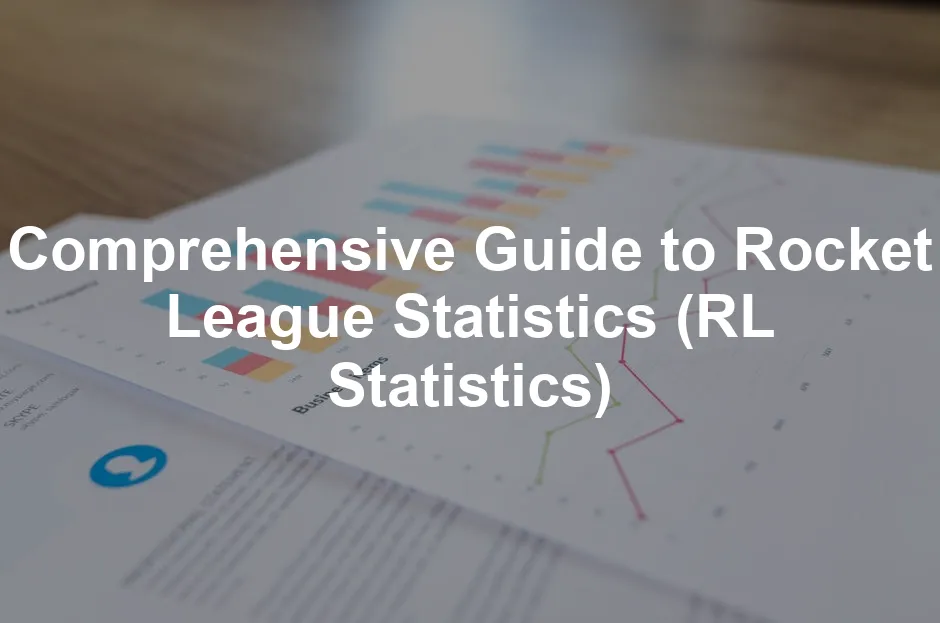Introduction
Rocket League is not just a game; it’s a phenomenon. Imagine soccer, but with rocket-powered cars. Sounds awesome, right? Released in 2015, this game quickly took the gaming world by storm. With its unique blend of sports and vehicular mayhem, it has captured the hearts of millions. From casual players to professional esports athletes, Rocket League continues to grow in popularity.
But why should you care about Rocket League statistics? Well, stats are the backbone of improvement. They provide valuable insights into your gameplay. Whether you’re a player aiming to climb the ranks or a fan wanting to understand the competitive scene, tracking statistics is essential. This data can help players refine their skills, understand their strengths and weaknesses, and develop strategies for success.
In this comprehensive guide, we’ll break down everything you need to know about Rocket League statistics. We’ll cover player stats, gameplay analytics, and resources for tracking your performance. Get ready for a wild ride through the world of RL statistics!

Understanding Rocket League Statistics
What Are RL Statistics?
Statistics, in gaming, refer to numerical data that represents player performance and game mechanics. In Rocket League, these statistics are crucial. They help players analyze their gameplay and track their progress over time. This isn’t just about counting goals; it’s about understanding how players interact with the game.
In esports, statistics play a fundamental role. They inform strategies, highlight player efficiency, and contribute to team dynamics. In Rocket League, statistics can include everything from goals scored to boost management. Understanding these numbers can be the difference between winning and losing.
Types of Statistics in Rocket League
General Player Statistics
General player statistics are the bread and butter of gameplay analysis. These include basic metrics like rank, wins, goals, and assists. Tracking these stats gives players a sense of their overall performance. For instance, if you notice a dip in goals scored, it might be time to rethink your strategy or practice your shooting skills.
These stats are especially important for skill improvement. By keeping an eye on your general performance, you can set goals for yourself. Aim for more wins or a higher rank, and watch your skills soar! And speaking of soaring, make sure you have the right gear to enhance your gaming experience. Check out the Rocket League Collector’s Edition (PS4) for an incredible gaming experience!

Advanced Player Statistics
While general stats are important, advanced player statistics take analysis to the next level. This includes metrics like boost usage, positioning, and movement speed. For example, a player’s boost management can reveal how efficiently they are using their resources. Are you hoarding boost while your teammates are starved? Advanced stats can help you identify these patterns.
Understanding advanced metrics can provide deeper insights into player efficiency. A player’s positioning can indicate their awareness and decision-making on the field. By analyzing these details, players can fine-tune their gameplay and improve their overall performance. To help you with that, consider getting a SteelSeries Rival 600 Gaming Mouse for precise control!
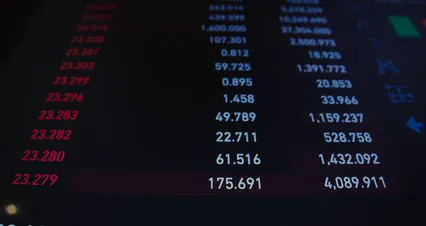
The Role of Statistics in Competitive Play
Statistics are not just numbers; they shape the competitive landscape of Rocket League. Teams rely on stats to inform their strategies and player selections. A player’s past performance can influence whether they’re a good fit for a specific team or role. These numbers can dictate match strategies, allowing teams to adapt based on opponents’ weaknesses.
Moreover, statistics can highlight emerging trends within the competitive scene. By analyzing data from recent tournaments, teams can stay ahead of the curve. Understanding how stats influence gameplay is crucial for any player looking to make it in the competitive arena. And to make your gaming even more competitive, consider getting the HyperX Cloud II Gaming Headset for crystal-clear communication!
Sources of Rocket League Statistics
Official Rocket League Tracker Networks
One of the go-to platforms for Rocket League enthusiasts is Rocket League Tracker. This site is like a stat nerd’s paradise. It provides detailed leaderboards for all Rocket League stats, allowing players to check their multiplayer stats and ranks in real-time. Imagine having a personal assistant that updates your performance while you play—Rocket League Tracker does just that.
Another notable platform is RLStats. This site offers similar features, including live updates, detailed match statistics, and profile lookups across various platforms like Steam, PlayStation, and Xbox. With these tools, players can monitor their performance, analyze their gameplay, and even compare their stats with friends. Plus, both platforms offer premium subscriptions for an ad-free experience, which is great if you want to dive deep into your stats without distractions. If you want to capture your gameplay, look into the Elgato Game Capture HD60 S!
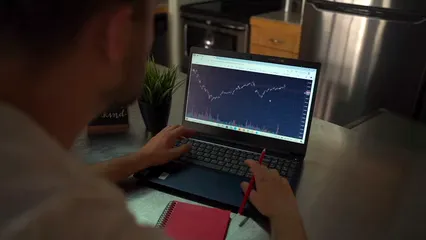
Community-Driven Platforms
Ballchasing.com
Now, let’s take a turn toward community-driven platforms. Ballchasing.com is a standout in this category. This platform is all about match replays and advanced analytics. Ever wanted to relive your epic game-winning goals? With Ballchasing, you can do just that. The site allows you to upload your game replays and provides a wealth of statistics, including boost usage, average speed, and even power slide frequency.
For the stat-hungry, Ballchasing offers a plethora of interesting insights. Want to know how your boost management stacks up against top-tier players? You can find that here. Curious about your positioning during matches? Yep, you can analyze that too. The platform offers countless angles for player analysis, making it a favorite among serious competitors. Don’t forget to get a Razer BlackWidow Elite Mechanical Gaming Keyboard for that extra edge!

Liquipedia
Another excellent resource is Liquipedia. Known for its expansive esports coverage, Liquipedia features a dedicated statistics portal for Rocket League. This site serves as a historical archive, showcasing stats from tournaments going all the way back to 2015. Want to know who the top-earning teams are? Or perhaps you’re interested in the youngest players making waves in the scene? Liquipedia has got you covered.
Navigating the Liquipedia statistics portal is straightforward. You can filter by specific tournaments, players, or even prize money rankings. If you’re keen on diving into historical data or tournament results, this is the place to go. It’s a fantastic way to gain insights into the competitive landscape of Rocket League. And if you’re serious about your setup, consider a Logitech G920 Driving Force Racing Wheel to enhance your gaming experience!

Player and Team Stats Tracking
Keeping track of individual and team performances over time is crucial for any competitive player. Platforms like Shift and Rocket League Tracker provide in-depth profiles for players and teams. By analyzing stats like boost management, movement speed, and positioning, players can identify their strengths and weaknesses.
Why is this important? Well, tracking your stats over time can help you pinpoint areas for improvement. For instance, if you notice a decline in your boost management percentage, it may be time to focus on that aspect during practice. Similarly, teams can use these metrics to refine their strategies and enhance their collaborative play. To keep your energy up while gaming, check out the Anker PowerCore Portable Charger!
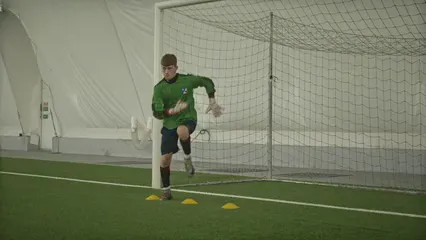
In summary, the world of Rocket League statistics is rich and varied. From official tracker networks to community-driven platforms, you have numerous tools at your disposal. These resources not only help players monitor their performances but also engage with the broader Rocket League community. So, get out there, track those stats, and elevate your game!
Current Trends in Rocket League Statistics
Season Updates and Player Activity
As of Season 16, Rocket League is buzzing with activity. Recent statistics reveal that there are over 398,000 active players online in just the last hour! That’s a lot of car soccer action. This season is set to wrap up in a month, and players are keen to climb the ranks.
Current player distribution showcases a range of skill levels. The breakdown reveals that around 19.18% of players sit at Platinum I, while only a mere 0.04% have reached the prestigious Supersonic Legend rank. This data indicates a healthy competitive environment. It’s a rollercoaster ride, with players constantly pushing themselves to improve.
Engagement levels are also surging. Community challenges and events are fostering player interaction. As players participate, they often keep a close eye on their stats. This season, more players are utilizing platforms like Rocket League Tracker to monitor their performance in real time. It’s like having a personal coach right on your screen!
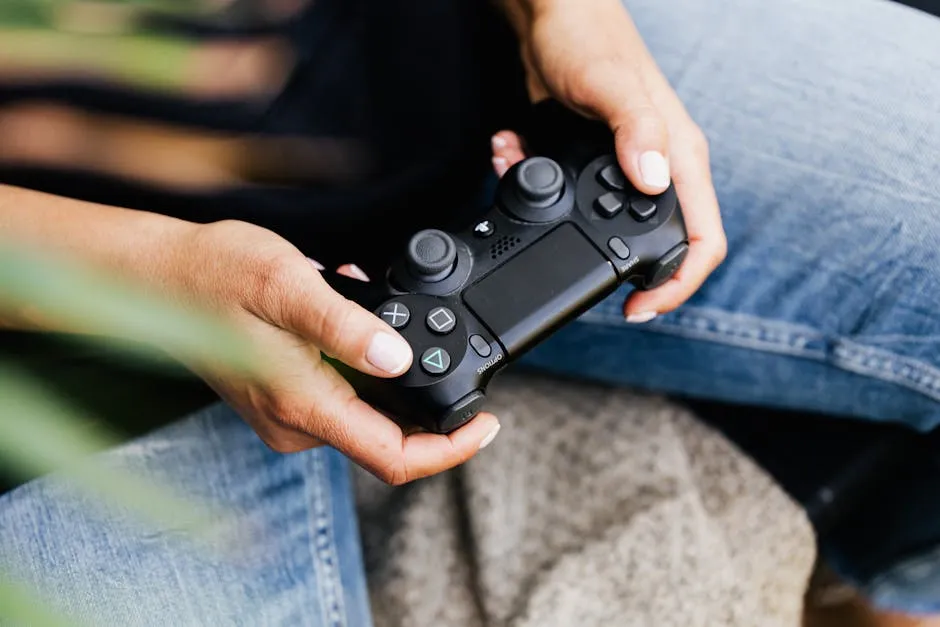
Competitive Scene Analysis
The competitive scene is heating up! Recent tournaments have showcased some jaw-dropping performances. The RLCS (Rocket League Championship Series) has been the talk of the town. Teams are battling it out for massive prize pools, and the stakes couldn’t be higher.
Top-tier players are making headlines. M0nkey M00n, for example, has been turning heads with consistent high-level play. His earnings reflect this, with over $898,000 to his name! Team Vitality and Team BDS are also dominating, showcasing teamwork that leaves spectators in awe.
Tournaments are not just about winning; they significantly impact player statistics. Players often adjust their strategies based on performance data analyzed from match replays. For instance, after a tournament, players might focus on areas like boost management or positioning. This adaptability is crucial in such a fast-paced game.
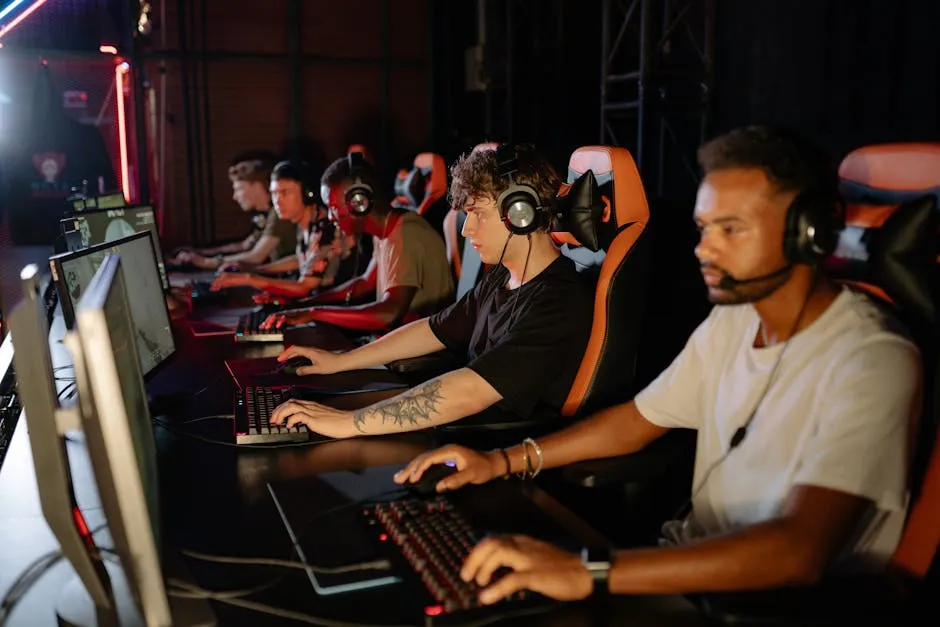
Community Engagement
Community events are the lifeblood of Rocket League. They motivate players to track their stats. Challenges like “Season Rush” encourage players to complete tasks for rewards, fostering a sense of camaraderie. Players rally together to achieve common goals, sharing strategies and tips along the way.
Platforms like Ballchasing.com enable players to analyze their matches in-depth. Here, players can see their boost usage, positioning, and even how often they score. This data is a goldmine for self-improvement. After all, knowing where you can enhance is half the battle!
Community-driven competitions also play a vital role. For instance, the “Rocket League Sideswipe Champions Road” tournaments invite players to showcase their skills in friendly competition. These events create a vibrant atmosphere, where players feel connected to the larger Rocket League community.
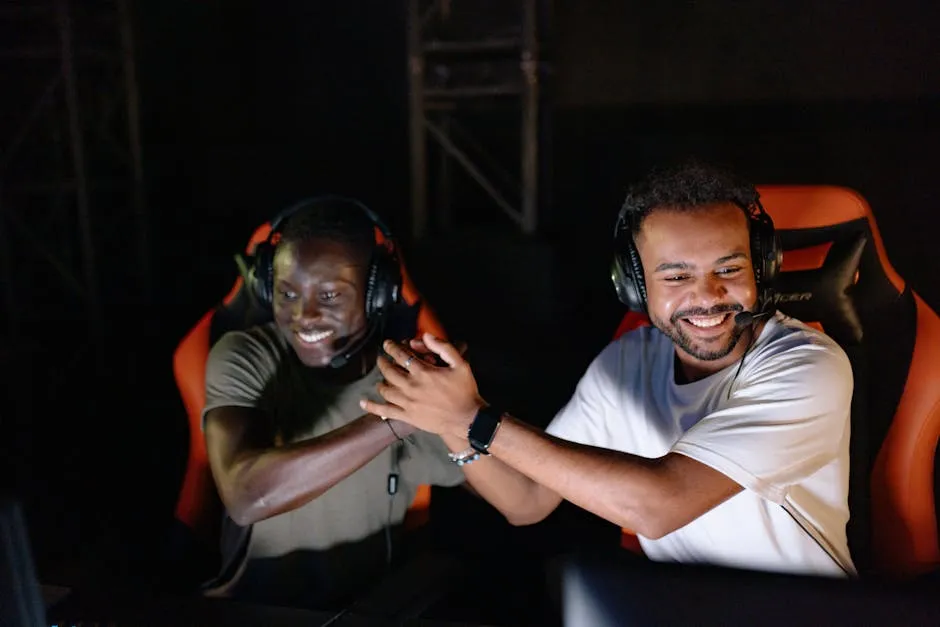
Analyzing and Utilizing RL Statistics
How to Analyze Your Own Statistics
Improving in Rocket League is all about understanding your gameplay. Ready to turn those stats into skills? Let’s get started! Here’s a step-by-step guide to help you analyze your own statistics effectively:
1. Track Your Stats: First things first, you need to gather data. Platforms like Rocket League Tracker and RLStats provide real-time updates on your performance. Sign up, and start tracking your wins, goals, assists, and more!
2. Focus on Key Metrics: Identify which statistics matter most to you. Are you struggling with goals? Or maybe your assists are low? Tracking these stats will give you a clearer picture of where to focus your improvement efforts.
3. Use Visualization Tools: Visual aids can help make sense of your data. Utilize graphs and charts provided by tracking platforms. They can highlight trends over time, making it easier to spot improvements or declines.
4. Compare Your Stats: Don’t be afraid to compare your performance with friends or top players. This benchmarking can motivate you and show you what the best do differently. It’s like having a personal coach, minus the whistle!
5. Set Achievable Goals: Based on your stats, set specific, measurable goals. Aim to improve your goals per game or boost usage percentage. Keep it realistic, and celebrate those small victories along the way!
6. Review and Adjust: Regularly review your stats and adjust your gameplay accordingly. If you notice a specific area lacking, dedicate time to practice that skill. The key is to be persistent and patient.
7. Engage with the Community: Join forums or social media groups where players discuss stats and improvement strategies. Sharing insights can spark new ideas and keep you motivated.
Tools like Ballchasing.com can provide in-depth analysis of your gameplay. They offer metrics like boost usage, movement speed, and ball proximity, which are crucial for honing your skills. By utilizing these tools, you can gain a comprehensive understanding of your performances and identify areas for improvement. If you’re looking to enhance your audio experience while gaming, check out the Corsair Void RGB Elite Wireless Gaming Headset!

Making Sense of Team Statistics
Team play in Rocket League often separates the amateurs from the pros. So how do teams leverage statistics to enhance performance? Here’s a breakdown of how to make sense of team statistics and improve your squad’s game:
1. Analyze Team Play Styles: Teams should start by reviewing their collective statistics. Are they scoring more goals from aerial plays or ground shots? Identifying patterns in gameplay can help refine strategies.
2. Focus on Key Metrics: Metrics such as average goals per match, assists, and saves are fundamental. Additionally, consider advanced stats like team boost management and positioning. The more detailed the analysis, the clearer the picture.
3. Evaluate Opponent Tactics: Teams can use statistics to study opponents. By analyzing their previous matches, teams can identify weaknesses. This knowledge is pivotal for developing counter-strategies.
4. Encourage Communication: Statistics are only useful if the team discusses them. Create an environment where players can share insights on their stats and strategies. This collaboration fosters a deeper understanding of team dynamics.
5. Adjust Strategies Based on Performance: If a team notices a drop in performance, it’s time to reassess. Analyze the data to see if the team is playing too defensively or aggressively. Adjusting strategies based on statistical evidence can lead to improved outcomes.
6. Celebrate Team Achievements: Recognize and celebrate your team’s successes based on stats. Whether it’s achieving a high win rate or a record number of saves, celebrating these milestones can boost morale.
7. Use Feedback Loops: Establish regular review sessions. After matches, analyze the statistics together. Discuss what worked, what didn’t, and how to move forward. This feedback loop is essential for continued growth.

Predictive Analytics in Rocket League
Predictive analytics has taken the esports world by storm, and Rocket League is no exception. How can you use statistics to forecast player performance and match outcomes? Let’s break it down:
1. Understanding Predictive Analytics: Predictive analytics involves using historical data to make informed guesses about future outcomes. In Rocket League, this means analyzing past player performances to predict future success.
2. Data Points to Consider: When predicting match outcomes, consider metrics like player rankings, win rates, and recent performance trends. These data points can provide insights into how likely a team or player is to win.
3. Utilizing Simulation Models: Some advanced platforms use simulation models to predict outcomes. These models analyze various factors, such as player skill levels and team compositions, to forecast match results.
4. Player Performance Forecasting: This approach can also be applied to individual players. By reviewing previous stats, analysts can predict how a player might perform in upcoming matches. For example, if a player consistently scores in certain matchups, they are likely to do so again.
5. Adjusting Strategies Based on Predictions: Teams can use predictions to strategize. If analytics suggest a particular opponent struggles against aggressive plays, the team can tailor their approach accordingly.
6. Engaging with Fan Predictions: Fans can also get in on the predictive action. Engaging the community by encouraging them to make predictions based on stats can enhance viewer engagement during matches.
7. Continuous Learning: As more data becomes available, predictive models improve. Teams should stay updated on the latest trends in analytics, ensuring they leverage the best insights for their strategies.
Incorporating predictive analytics into gameplay not only enhances competitive strategies but also elevates the viewing experience. Fans and teams alike can benefit from understanding the nuances of player statistics and their implications for future performance.
In conclusion, analyzing and utilizing Rocket League statistics is essential for improvement, whether you’re a solo player or part of a team. By focusing on personal stats, team dynamics, and predictive analytics, players can navigate the competitive landscape with confidence and flair!

FAQs
What are the most important statistics to track in Rocket League?
For both casual and competitive players, several statistics are paramount. First up, goals scored and assists provide a clear view of scoring ability. Wins and match win rates are essential for understanding overall performance. Tracking saves is also crucial, especially for defensive players. Boost management is another key metric. Efficient boost usage can lead to more opportunities and better positioning. Advanced stats, like positioning and ball proximity, can reveal areas for improvement. For those serious about climbing ranks, keeping an eye on these stats is vital.
How can I improve my Rocket League stats?
Improving Rocket League stats takes dedication and strategy. Start by analyzing your gameplay. Identify weak spots based on your stats. Practice specific skills, like aerial shots or boost management, during training sessions. Utilize replay reviews to see where you can improve. Focus on positioning and decision-making during matches. Also, play with a consistent team. This helps develop synergy and enhances team play. Finally, set achievable goals. Aim for a certain number of goals per match or a specific win rate. Celebrate small victories along the way, and remember, improvement is a journey!
Are there specific tools for tracking Rocket League statistics?
Absolutely! Several tools cater to Rocket League players wanting to track their statistics. Rocket League Tracker is a popular choice. It offers real-time updates on your performance, including detailed leaderboards. Ballchasing.com allows players to analyze match replays and provides in-depth statistics on gameplay. For those interested in esports, Shift offers a comprehensive overview of player stats and match results. Each platform has unique features, so explore them to find the one that suits you best!
How does Rocket League’s ranking system work?
Rocket League uses a tiered ranking system to gauge player skill. Ranks range from Bronze to Supersonic Legend. Players must compete in ranked matches to earn or lose skill points. Each rank has divisions, providing a more granular skill level. For instance, within the Gold rank, there are Gold I, II, and III divisions. Players must maintain a consistent performance to ascend through ranks and divisions. It’s all about refining skills and climbing the competitive ladder!
Can I see my stats in real-time while playing?
Yes! Many platforms offer in-game tracking tools. The TRN In-Game App from Rocket League Tracker allows players to monitor their stats in real-time. Simply download and install the app, and you can keep an eye on your performance while enjoying the game. These tools enhance gameplay by providing instant feedback. Knowing your stats live can help adjust your strategy on-the-fly. So, get that app installed and start tracking your journey in real-time!
Conclusion
Rocket League statistics are crucial for players, teams, and the community. They serve as the compass for improvement, helping players identify strengths and weaknesses. Without tracking performance, how can one expect to level up? Statistics provide insights that transform good players into great ones.
For players, understanding their stats can illuminate their gameplay. Want to boost your rank? Focus on those numbers! They reveal patterns in your performance, guiding you toward targeted practice. You’ll soon notice improvements and feel that sweet satisfaction of progress.
Teams also heavily rely on stats. Coaches use data to make informed decisions about strategies and player selections. The right metrics can reveal the best compositions and approaches against specific opponents. In the competitive arena, knowledge is power, and stats are the key to unlocking it.
Additionally, for those interested in the broader implications of statistics in esports, consider exploring league of legends esports statistics for insights into how data shapes competitive gaming.
Understanding statistics in esports can provide valuable insights into player performance and team dynamics. Explore more about esports statistics here.
The community thrives on shared statistics. Fans love to analyze player performances. They engage in discussions, compare stats, and celebrate the achievements of their favorite players. This camaraderie strengthens the Rocket League community. It’s about more than just gameplay; it’s about connection and shared experiences.
So, don’t sit back! Dive into your stats. Track your progress, analyze your gameplay, and engage with the community. The more you invest in understanding your performance, the more enjoyment you’ll derive from Rocket League.
Explore platforms like Rocket League Tracker, Ballchasing, and Shift. They provide fantastic resources for tracking your stats and analyzing gameplay. Don’t miss out on these tools that can elevate your game to new heights. Happy gaming, and may your stats shine bright! And if you’re looking for some great games to play, don’t forget to check out The Last of Us Part II (PS4)!
Please let us know what you think about our content by leaving a comment down below!
Thank you for reading till here 🙂
All images from Pexels

